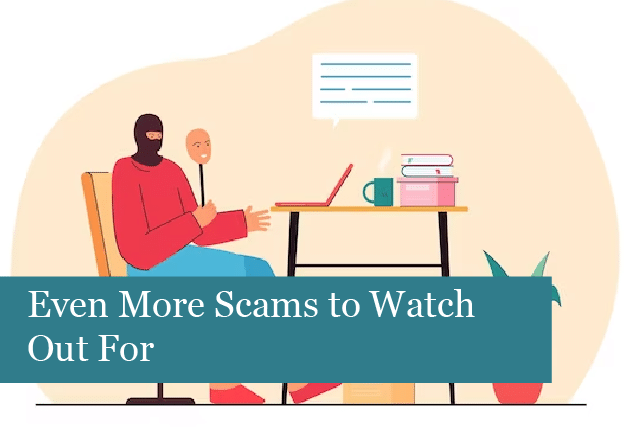
Millions of people across the UK are being hit by scammers. The problem is that scammers continue to evolve their methods with new technologies and twists on old scams.
So, what scams should you watch out for, and what can you do to stay safe? Read on to learn the answers to these questions!
The Latest Scams
1. The “Hi Mum” Scam
The “Hi Mum” scam is one that’s simple and effective. For this scam, victims are contacted by an unknown number through text or WhatsApp. The message says a loved one has lost or damaged their phone. The scammer then asks you to send money to replace their phone.
Some scammers are using text messages that look as if they’re from “Mum” or “Dad,” asking for victims to send them money.
The text message usually says the person is at Woolworths, Coles, or a service station but has taken the wrong card with them. The message then asks the receiver to put £77 or £220 into their account and says, “They will pay you back when I get home.”
If you receive a message from a number you don’t recognize, first verify the contact by reaching out to the person the messenger is referring to. For instance, if the message is about your child, contact them to see if they’re having the problem described in the text message before acting on it.
2. The Toll Road Scam
In another text message scam, victims receive a message from a toll road company, such as Linkt. The message says they have overdue fines. This scam is usually targeted at people who don’t travel very often but may travel during holidays. Scammers use this time period to focus on those people who rarely travel.
The problem is that these messages can be quite lucrative for the scammer. Consider that if you send 10,000 people this message, and 10% have recently travelled through a tollway recently, they don’t have an account linked to their car.
However, the victims are prompted to click on the link to pay their “fine” or update their details. The link leads to a website that looks legitimate, and they enter their banking details.
To avoid the toll road scam, it’s good to know that toll companies never text asking for money or personal details. If you do have an unpaid toll fine, it will come in the mail.
3. Online Job Scams
Online job scams are also becoming more popular. These may come through a messaging platform such as WhatsApp or social media. The victims are contacted by a scammer pretending to be a recruitment officer with a good job offer.
Their victims are asked to set up a cryptocurrency wallet to convert their own money, with the promise they’ll make more money back. Unfortunately, their money disappears into the scammer’s wallet.
The problem is that scammers are usually smooth talkers who have some knowledge of human psychology. They can sound very convincing when asked if cryptocurrency is necessary to obtain the position.
The key here is that no job applicant would need to own a cryptocurrency wallet and convert their money into cryptocurrency. If you see such ads listed on social media or receive a message directly from a messaging app, there’s a high chance this is a scam.
4. Suspicious Transaction Scams
With suspicious transaction scams, victims receive a call from a scammer who is pretending to be from their bank. The scammer explains there has been a suspicious transaction on their account or a transfer has gone through that shouldn’t have.
The scammers may also send messages saying your account is blocked and ask you to contact them to unblock your account. The victim is then asked to “confirm” their details and hand over their personal data.
The way to avoid this scam is to realise that banks never call and ask you for your personal details. If you receive such a call, hang up immediately and call your bank via the number listed on the bank’s website.
5. Crypto Scams
Scammers are also improving their investment scams, finding these methods to be especially beneficial. These scammers are more sophisticated and are usually run by criminal syndicates.
The most common crypto scams encourage victims to invest with the assistance of a “crypto broker” or a trader via their website. The fraudulent crypto broker trades cryptocurrencies on behalf of the investor, and the investor can monitor the trading and even withdraw small amounts of money.
The issue is that these accounts are fake, and scammers can make the data look as though the victims are trading on an authentic platform. However, the truth is the website’s fake, and the scammers are stealing their victim’s money.
The best way to protect yourself from this scheme is to see whether the investor is accredited by the Financial Conduct Authority[SV4] . This is a paid service; however, the cost is worth it to avoid being scammed out of all your money by a crypto scam.
How to Avoid Scams
Scammers are becoming more sophisticated and developing new methods to get your money. So how can you avoid being scammed? Follow these tips to keep you and your money safe:
Be sceptical when someone contacts you: especially if the number is unknown to you.
Enable multi factor authentication: add the feature to accounts that offer this service, as it acts as an additional layer of protection. Avoid using text message versions to avoid SIM swap scams.
Research companies: before you make a purchase or a donation, take time to research the company. Do a search on Google for the company’s name like this, “company name + scam” or “company name + reviews.” Research charities, too, before making a donation.
Be careful with your phone: if you believe a call is spam, don’t respond or press a button. The safest thing you can do is hang up and ignore the call completely.
Don’t refund or forward overpayments: it may seem like the right thing to do if a scammer says they’ve sent you a refund or overpayment by mistake. However, doing this can mean the money goes directly into the scammer’s pocket.
Look for suspicious payment requirements: another sign of a scam is if you’re asked to send money via wire transfer, money order, cryptocurrency, or gift cards. These payments are more difficult to track and cancel than other types of payments. Responding to these scams may mean you’re not able to get your money back.
Staying vigilant and aware are the best ways to avoid falling victim to any scam, including the ones in this article.
Recommended Posts

10 Biggest Cybersecurity Mistakes of Small Companies
18th April 2025

The Importance of Planning in Business IT Solutions
11th April 2025

